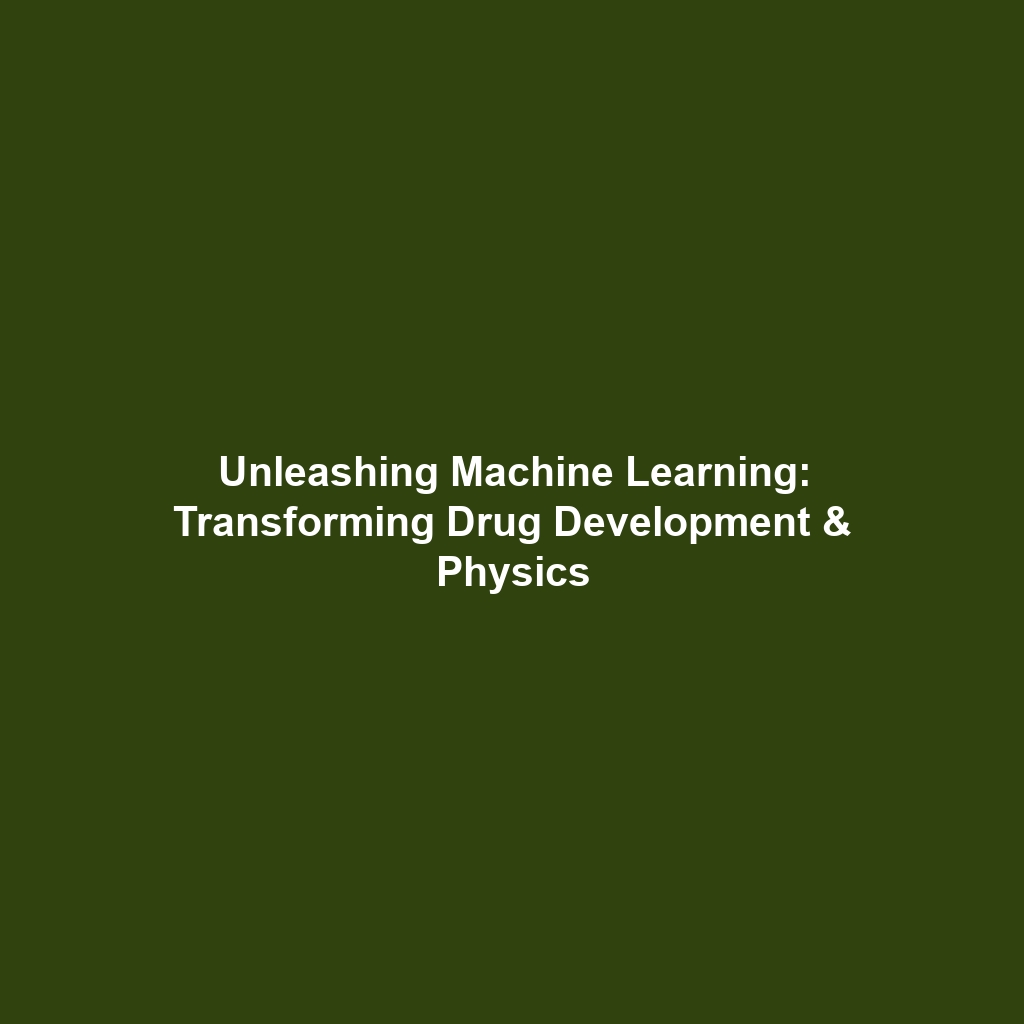Machine Learning’s Role in Scientific Discoveries
Introduction
The integration of machine learning into various scientific disciplines has ushered in a new era of discovery, significantly impacting fields such as drug development and particle physics. As one of the key components of Big Data in Science, machine learning enables researchers to analyze and interpret vast datasets, uncovering patterns and insights that were previously unattainable. This technology allows for accelerated breakthroughs and enhanced decision-making processes, underscoring its importance in advancing scientific knowledge.
Key Concepts
Understanding Machine Learning
Machine learning is a subset of artificial intelligence (AI) that focuses on building systems that learn from and make predictions based on data. Within the realm of scientific discoveries, it encompasses several techniques including supervised learning, unsupervised learning, and neural networks.
The Role of Big Data
Big Data in Science refers to the immense volumes of structured and unstructured data generated in various scientific research initiatives. Machine learning algorithms harness this data to enhance precision, efficacy, and insights across different domains:
- Predictive modeling in drug development.
- Simulation and analysis in particle physics.
- Data mining for pattern recognition in biological datasets.
Applications and Real-World Uses
The applications of machine learning in scientific discoveries are diverse and transformative. Below are some prominent examples:
- Drug Discovery: Machine learning models are employed to predict the efficacy of compounds, significantly reducing the time and cost associated with traditional methods.
- Astrophysics: Algorithms analyze gravitational wave data, enabling researchers to conduct studies on black holes and cosmic events.
- Genomics: Machine learning aids in identifying genetic disorders and potential treatments based on large predispositions datasets.
Current Challenges
Despite the remarkable advancements, there are several challenges associated with the application of machine learning in scientific contexts:
- Data Quality: The effectiveness of machine learning heavily depends on the quality of the input data. Inconsistent or biased data can lead to erroneous conclusions.
- Interpretability: Complex models are often seen as ‘black boxes’, making it difficult for researchers to understand the decision-making process behind predictions.
- Integration: The integration of machine learning tools into existing scientific workflows can be cumbersome, requiring extensive training and adjustments.
Future Research and Innovations
Looking ahead, several innovations may shape the future of machine learning in scientific discoveries:
- Explainable AI: Advances aiming to make machine learning models more interpretable could help increase trust and adoption in scientific fields.
- Quantum Machine Learning: Combining quantum computing with machine learning presents exciting possibilities for solving complex scientific problems.
- Automated Machine Learning (AutoML): This technology aims to simplify the model selection and tuning process, making machine learning more accessible to scientists across disciplines.
Conclusion
In summary, machine learning is fundamentally reshaping the landscape of scientific discovery, especially in areas such as drug development and particle physics, within the context of Big Data in Science. As we continue to face challenges in data quality and model interpretability, ongoing research and innovations will be crucial in unlocking its full potential. For further exploration of this dynamic field, visit our related articles on Drug Development and Particle Physics.
